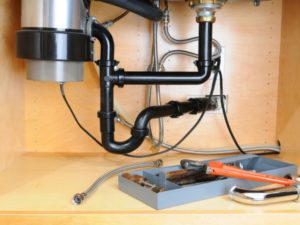Homeowners want to be able to relax and live comfortably within their own four walls. But if you find yourself dealing with a repetitive stinky drain or constant smelly water supply, finding peace at home may be near impossible.
The top reasons why these issues occur can be narrowed down to three common occurrences. Read on, and find out exactly how these annoying, smelly problems can be detected and resolved.
1. Problems with your Ventilation
In most homes, sewer gas can leave safely and stink-free through a ventilation system.
This system works to allow atmospheric pressure in while the free-flowing air brings the sewer gas to the outside world.
However, ventilation systems can become clogged up with material and substances like snow, animal nests, organic debris, and leaves.
When these clogs occur, the sewer gas becomes backed up and is eventually forced back into the waste drains and toilets in your home, bringing with it an awful odor.
To deal with a simple clog, such as a small leaf pile, it can easily be removed, but only attempt to do so if the area is easily accessible.
It is recommended to call in a plumbing professional who is equipped with the tools and experience necessary to safely remove the clog.
2. Bacteria in your Water Heater
Water heaters are dark and moist, which is the perfect environment for bacteria to multiply and thrive. These bacteria can become smelly, even more so when they're exposed to sulfur and the metal components of your water heater.
This smell pollutes your water supply and can quickly spread throughout the pipes within your home.
To solve this bacterial infestation, try giving your water heater a good clean with hydrogen peroxide (H2O2). Peroxide kills bacteria within a water heater without causing damage to the water heater itself.
This process is also safe for the environment and your household, as H2O2 breaks down into oxygen and water in time.
Another solution is the installation of a water filtration system. They work to purify your water by filtering out sulfur, limiting the amount that bacteria have access to.
3. A Dried-up P-Trap
A p-trap is the u-shaped area of a drain, often found on most drain pipes around a home.
This area of piping is used to store a small amount of water that works to form a seal against sewer gases.

Instead, the sewer gases are sent to a ventilation system which is directed out of the home.
When p-traps dry out, the sewer gas gains access to these drains, leading to the smell of "rotten eggs" coming into a household.
These traps can dry out due to a leak, disuse, or a blockage that has siphoned out the existing water.
When you're dealing with a pipe that has not been used for an extended period of time, the most common solution is to simply let the tap run for a few minutes, filling up the p-trap.
Once full, the drain is once again protected from leaking sewer gas.
If the smell is coming from a drain that is commonly used, the issue might be more critical. Call a plumber immediately so that they can detect the root of the issue, whether it is a leak or a blockage.

